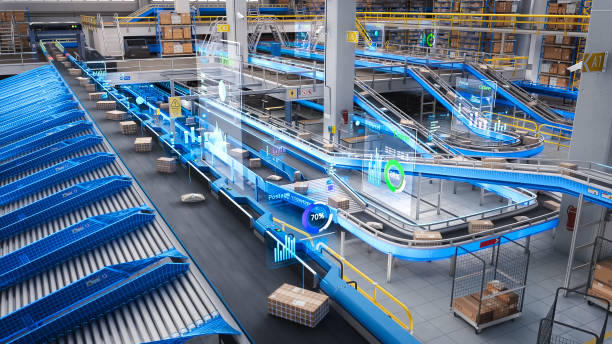Q1. Could you start by giving us a brief overview of your professional background, particularly focusing on your expertise in the industry?
To obtain a challenging position for a competent professional in Supply Chain and Logistics Management along with Marketing with over 14 years of experience utilizing extensive experience to drive business growth and establish strong relationships within the Indian logistics market. With expertise in customer retention and a proven track record of delivering exceptional service, I aim to leverage my marketing and sales-oriented background to contribute to the organization's success, utilizing my excellent communication skills to build and maintain positive partnerships with clients.
Q2. Which customer segments (FMCG, pharma, e-commerce, automotive, etc.) are currently contributing the most to logistics demand from your perspective?
From my perspective, all industries contribute to logistics, with FMCG, Automotive, and Pharma being the most significant contributors. E-commerce is in a growth stage, and in the future, it is expected to generate even higher demand in the market.
Q3. What technologies are gaining traction in your day-to-day operations—especially in route optimization, fleet tracking, or warehouse visibility?
In logistics operations, technologies such as data capture devices, AI, and GPS tracking are gaining significant traction, particularly for route optimization, fleet tracking, and warehouse visibility. These technologies offer real-time data and insights, enabling more efficient and cost-effective operations.
Q4. How is the pressure to reduce carbon emissions and fuel consumption influencing decisions around fleet, routing, or packaging?
Fleet management, packaging, and routing optimization decisions are being greatly impacted by the push to lower fuel and carbon emissions. Companies are aggressively implementing eco-friendly packaging solutions, switching to greener fleets, and optimizing routes to reduce their environmental impact.
Q5. How are companies building more resilient supply chains to deal with disruptions like weather, port delays, or geopolitical issues?
Companies are building more resilient supply chains by diversifying suppliers, increasing inventory buffers, leveraging technology for visibility and predictive analytics, and developing contingency plans. They are also focusing on building stronger relationships with partners, restructuring supply lines geographically, and adopting strategies like regionalization to mitigate risks from geopolitical events and other disruptions.
Q6. How is the entry of new-age logistics tech startups or aggregator models (e.g., digital freight brokers) affecting traditional market dynamics?
By bringing increased efficiency, transparency, and accessibility to the freight transportation sector, aggregator models and newage logistics software businesses are drastically upending established market dynamics. By using technology to improve efficiency, facilitate communication between shippers and carriers, and provide competitive pricing, these businesses are eventually posing a threat to the market's more established competitors.
Q7. If you were an investor looking at companies within the space, what critical question would you pose to their senior management?
The below points need to be discussed if I were an investor: -
Where Do You See Sales Trending in the Next 12 to 24 Months?
How Does the Company Plan to Raise Capital to Fund Future Growth?
What Are the Risks of Sourcing Raw Materials or Holding the Line on Costs of Services?
What Is the Best Use of the Cash on the Company's Balance Sheet?
Who Are the Emerging Competitors in the Industry in Which You Operate?
What Part of the Business Is Giving You the Most Trouble Now?
Create an account to read the full article
Create Account
Already have an account? Sign in

